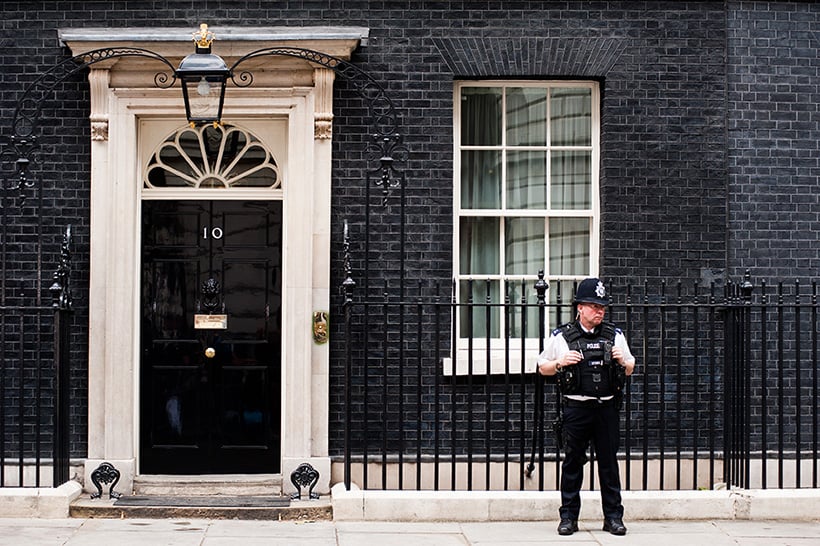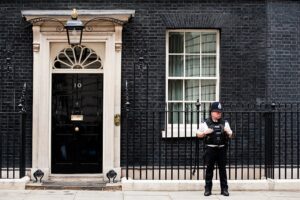The Government has announced a mini-budget featuring a range of measures that will affect working people’s finances, including a reduction in income tax.
The Chancellor delivered a mini-budget in the House of Commons on Friday 23rd September, outlining the Government’s plans to tackle the various challenges currently facing the UK economy.
The statement included a number of measures that will affect Police Officers and all working people across the country, with a heavy focus on tax-cutting.
The mini-budget and what it means for you
Income tax
One of the headline announcements was a reduction in income tax, which will be cut from 20% to 19% across the basic-rate income tax band (income earnt between £12,571 and £50,270). The change will take effect in England, Wales and Northern Ireland from April next year.
If you earn £50,271 or more, you’ll pay the reduced rate of 19% on the portion of your income between £12,571 and £50,270, but continue to pay 40% income tax on what you earn above £50,271.
The Chancellor also announced that the 45% highest tax band is being scrapped. The Government later abandoned this plan.
National Insurance
The Government also confirmed the reversal of recent changes to National Insurance (NI), which was raised by 1.25% in April 2022. This meant workers and employers paid an extra 1.25p in NI for every pound earned, but this increase will be axed as of November 6th.
According to the Treasury, this will save nearly 28 million people an average of £330 per year. NI contributions are calculated as a percentage of your weekly earnings, so the more you earn, the more you’ll benefit from the scrapping of the 1.25% hike.
Here are some examples of the savings workers will make through reduced National Insurance contributions from November 6th, relative to salary:
|
Annual salary |
Annual saving (through reduced NI contributions) |
|
£30,000 |
£218 |
|
£50,000 |
£468 |
|
£100,000 |
£1,093 |
Stamp duty
In an effort to boost the housing market, the Government is cutting stamp duty in England and Northern Ireland with immediate effect, which means you could pay less tax when you buy a property.
Stamp duty is calculated as a percentage of the cost of the property you’re buying. The changes mean the rates are now as follows:
- 0% on property purchases up to £250,000 (£425,000 if you’re a first-time buyer)
- 5% of purchase price between £250,000 and £925,000
- 10% of purchase price between £925,000 and £1,500,000
- 12% of purchase price over £1,500,000
The threshold at which stamp duty is paid has doubled from £125,000 to £250,000. To put this into perspective, if you’re not a first-time buyer and you buy a property for £300,000, you’ll pay no stamp duty on the first £250,000 and 5% on the remaining £50,000. This adds up to £2,500 in total, compared to the £5,000 you would have paid before the latest change.
Discounted stamp duty rates for first-time buyers will also be available on properties costing up to £625,000, up from £500,000 previously.
Besides the tax cuts that dominated the mini-budget, other announced measures include:
- Tighter rules around universal credit for claimants who don’t fulfil their job search commitments
- Scrapping of rules limiting bankers’ bonuses
- Cancellation of planned increases in duties on beer, cider, wine and spirits
Getting to grips with your finances
The mini-budget comes at a time when many Police Officers and Staff are facing serious financial difficulties.
Inflation has recently hit its highest level in more than 30 years, driven by rising prices for gas and electricity, fuel, food and other basic necessities. These costs have been going up more rapidly than Police pay, making it increasingly tough for people to make ends meet.
Mortgage borrowers will soon feel the effects of the higher interest rates announced by the Bank of England this week, which for many will mean higher monthly repayments.
Responding to the mini-budget, Steve Hartshorn, National Chair of the Police Federation of England and Wales, said the statement sets out “much-needed support from the Government”, but many members and their families ”are still under huge financial pressure”.
“We’re now in the appalling situation where one in seven Police Officers are struggling to cover their monthly essentials,” he added. “With the Bank of England recently raising interest rates from 1.75% to 2.25%, it is likely only going to get worse as we head into winter and the cost of living crisis deepens.”
During these difficult times, make sure you’re taking full advantage of every bit of help available to you, whether it’s free money from the Government via the Lifetime ISA or tax-free allowances and bonuses with friendly society savings accounts.
It’s also important to have a handle on your personal finances and to fully understand how much you’re earning and what’s being deducted from your pay, both now and in the future. Download our 2022/23 Police Pay Scales Guide to stay up to date with salaries and allowances across all ranks and pay points.
You can also book a telephone or video call to discuss your financial options one-to-one with one of our financial experts.










